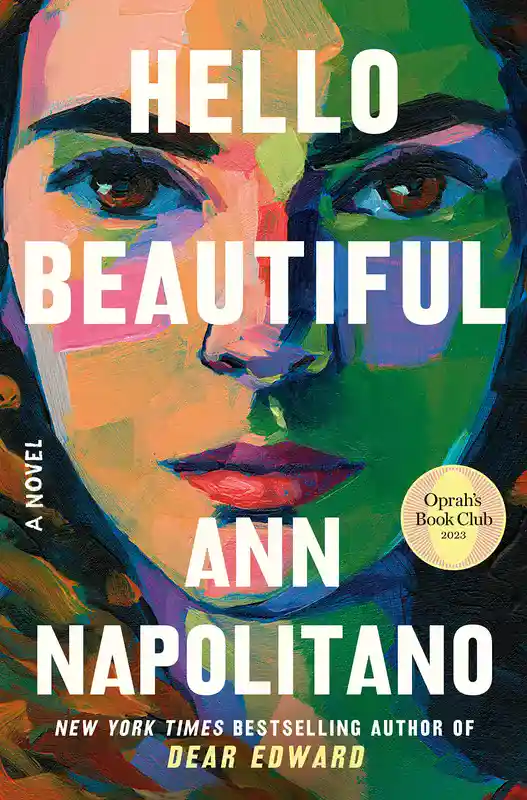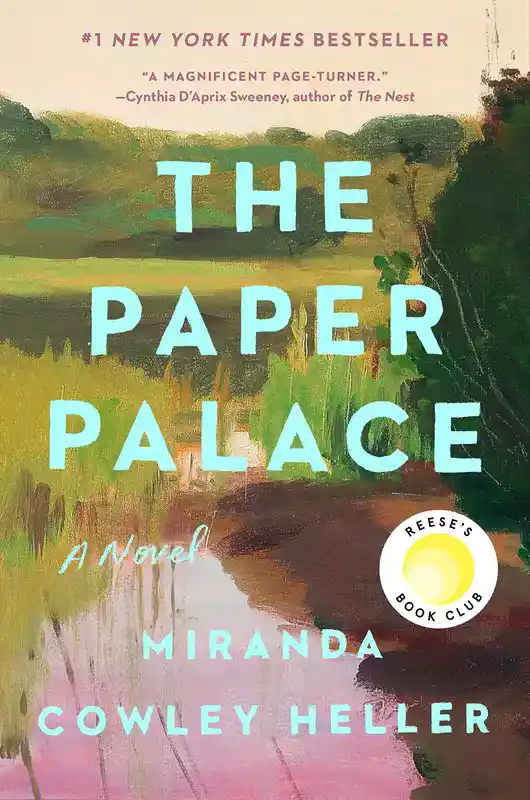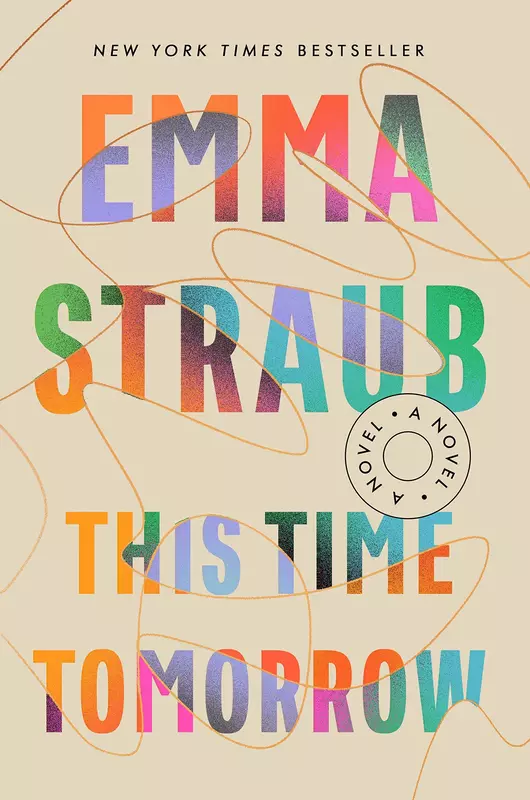This post may contain affiliate links. Read more here.
Book club discussion questions for The Pineapple Street by Jenny Jackson explore the themes of family, love and class following the story of three women in a wealthy Brooklyn family.
The book is set in the beautiful stately homes on the “fruit streets” of Brooklyn, and the story is told from the perspectives of Darley, Sasha, and Georgiana. Darley is the eldest daughter of the well-connected Stockton family who traded her career and inheritance for motherhood. Sasha, a middle-class New England girl, has married into the Brooklyn Heights family and is seen as the outsider. Georgiana, the youngest daughter, has fallen in love with someone she cannot have and must decide what kind of person she wants to be.
The book delves into the indulgent lifestyle of the one-percenters and is a smart, witty, and escapist novel that sparkles with humor. It explores the peculiarity of an unknown family and the insane idea of first love.
The novel also raises questions about the wealth disparity in American society and how some people live in a bubble, oblivious to the social ills surrounding them. The characters in the book are beautifully written, and the story is heartwarming, emotional, and relatable.
As you dive into this captivating novel, you will encounter rich themes and complex characters that will leave a lasting impression. This detailed discussion guide provides a variety of book club questions for Pineapple Street to inspire in-depth conversations about the novel’s many layers of meaning.
With plenty of drama, humor, and social commentary on class and love, Pineapple Street is a witty and indulgent read that will leave you wanting more. And whether you are a seasoned book club member or a newcomer, this guide will help you navigate the intricate web of relationships and hidden truths that lie beneath the surface of Pineapple Street.
So grab a glass of champagne, settle in, and let’s discuss the complicated yet lovable characters and their stories! ❤️
The Synopsis
A deliciously funny, sharply observed debut of family, love, and class, this zeitgeisty novel follows three women in one wealthy Brooklyn clan
Darley, the eldest daughter in the well-connected old money Stockton family, followed her heart, trading her job and her inheritance for motherhood but giving up far too much in the process; Sasha, a middle-class New England girl, has married into the Brooklyn Heights family, and finds herself cast as the arriviste outsider; and Georgiana, the baby of the family, has fallen in love with someone she can’t have, and must decide what kind of person she wants to be.
Rife with the indulgent pleasures of life among New York’s one-percenters, Pineapple Street is a smart, escapist novel that sparkles with wit. Full of recognizable, loveable—if fallible—characters, it’s about the peculiar unknowability of someone else’s family, the miles between the haves and have-nots, and the insanity of first love—all wrapped in a story that is a sheer delight.
In love with literature? Try audio books or writing classes
for free for 30 days.✨
Book Club Questions for Pineapple Street
I hope you and your book club will enjoy my discussion reading guide for Pineapple Street by Jenny Jackson ✨
- In Pineapple Street, the Stockton family is a paradoxical blend of typical American values and extreme wealth. Which aspects of their family dynamic do you find relatable, and which do you find alienating? Are there any cultural or historical factors that contribute to their unique worldview and behavior?
- Each of the Stockton siblings has a complex relationship with the family’s inherited wealth. How do their attitudes towards money reflect their personalities and life experiences? Does Georgiana’s relative youth make her more or less susceptible to the pressures and privileges of being born into privilege?
- Darley’s struggle to reconcile her role as a stay-at-home mother with her sense of identity and purpose speaks to broader issues of gender, class, and work-life balance. How does her background and upbringing shape her perceptions of motherhood and domesticity? In what ways does she benefit from or struggle against the expectations placed on her as a woman and a mother?
- The novel’s setting, Brooklyn Heights, serves as a microcosm for the themes of class and identity that permeate the story. How does the neighborhood’s history and architecture shape the characters’ perceptions of themselves and each other? In what ways does the community reflect the broader socioeconomic divisions of contemporary America?
- Mullin’s role in Sasha’s life is multifaceted and raises intriguing questions about the impact of past relationships on present choices. How does Mullin represent a contrast to Cord and the Stockton family, and what lessons does Sasha learn from her time with him? In what ways might Mullin have influenced Sasha’s expectations and desires for marriage, and how might this have set her up for disappointment? To what extent is Mullin a catalyst for Sasha’s personal growth and self-reflection?
- The house on Pineapple Street is a central symbol in the novel, representing different things to different characters. How does the house embody the themes of family, wealth, and class that run through the book? What does it represent for each of the characters, and how do their relationships to the house evolve over time? How does the setting of the novel contribute to its larger themes and messages?
- Sasha, a middle-class girl from New England, has married into the wealthy Stockton family. Discuss how her upbringing and values clash with those of her new family, and how she tries to navigate her new environment.
- The novel raises questions about the growing wealth disparity in American society. How do the Stocktons’ attitudes towards wealth and class contribute to this problem, and what solutions does the novel offer?
- Darley’s metaphor of the fruits serves as an interesting lens through which to view the characters’ personalities and relationships. If Darley is an orange, Cord is a pineapple, and Georgiana is a cranberry, what fruit would best characterize Sasha and why? How do the fruits function as symbols of the characters’ identities and aspirations, and what insights do they offer into the novel’s larger themes of class, privilege, and personal fulfillment? Lastly, which fruit would you choose to represent yourself, and why?
- Brady’s professed love for Georgiana raises questions about his true motives and character. Do you believe that he genuinely cares for her, or is he using her for personal gain? Is his behavior towards her ultimately forgivable or reprehensible?
- Darley’s decision to keep Malcolm’s firing a secret from the Stocktons highlights the complex nature of loyalty and betrayal. Is she acting out of love for her husband, or is she complicit in his unethical behavior? Does her loyalty to her family conflict with her sense of moral responsibility?
- Sasha’s outsider status within the Stockton family underscores the social and cultural divides that separate the wealthy from the rest of society. How does she navigate these divisions, and what does her experience reveal about the nature of privilege and class? Can she ever truly bridge the gap between her own background and that of her in-laws?
- Georgiana’s relationships with Brady and Curtis offer contrasting visions of love and companionship. How do the two men represent different aspects of her personality and desires? What does each of them bring to her life, and what do they take away?
- The book follows three women of the Stockton family who belong to New York’s wealthy elite. How does the author use the characters of Darley, Sasha, and Georgiana to explore the complexities of class and wealth?
- Sasha’s request for Cord to prioritize her over his family raises complex questions about the boundaries between individual and family needs, especially in contexts of inherited wealth and privilege. In what ways might Sasha be unfairly burdening Cord with her demands, and what are the potential consequences of Cord prioritizing Sasha over his family? How does the novel explore the tension between personal fulfillment and familial obligation in the context of wealth and social status?
- The characters in Pineapple Street are all flawed in their own way, and their flaws are often rooted in their privilege. Discuss how the author portrays these flaws and whether the characters are able to overcome them.
- The Stockton family’s home on Pineapple Street is a symbol of their wealth and privilege. Discuss how the author uses the setting to reveal the family’s attitude towards money and their relationship with the community around them.
- Darley gave up her job and inheritance to become a mother. Do you think her decision was a feminist one? Why or why not?
- Georgiana falls in love with someone she can’t have and grapples with her own privilege and the responsibility that comes with it. Discuss how the novel portrays the intersection of love, class, and responsibility.
- The novel explores themes of family, love, and class. Which theme did you find most compelling, and why?
Selected Reviews for Pineapple Street
“I loved Pineapple Street. The characters are complex and engaging and their stories bring a particular slice of New York magically alive. So wise, emotionally honest, and such fun!”
—Helen Fielding
“Set in the windy, sun-dappled streets of Brooklyn Heights, Pineapple Street is a portrait of a NY family strait-jacketed by their own wealth that is at once searing, hilarious and poignant.”
—Miranda Cowley Heller
“I devoured Pineapple Street. Jackson’s writing brims with wit and warmth. Her characters are deliciously flawed and, at the same time, loveable and compelling. Her observations about family, money, class, and love are spot on….[A] messy, hilarious and ultimately relatable family story.”
—Cristina Alger
“A delicious new Gilded Age family drama—almost a satire—set in the leafy enclaves of Brooklyn Heights….A lighthearted book that captures a slice of New York society, a guilty pleasure that also feels like a sociological text, punctuated with very particular references to restaurants, preschools, nightclubs, and other pillars of urban life in 2023.”
—Vogue
Additional Recommendations
Hope you enjoyed my book club discussion questions and reading guide for Pineapple Street by Jenny Jackson!
Here are some more of my book club recommendations:
Hello Beautiful by Ann Napolitano
A forgotten history. A secret network of women. A legacy of poison and revenge. Welcome to The Lost Apothecary…
William Waters grew up in a house silenced by tragedy, where his parents could hardly bear to look at him, much less love him—so when he meets the spirited and ambitious Julia Padavano in his freshman year of college, it’s as if the world has lit up around him.
With Julia comes her family, as she and her three sisters are inseparable: Sylvie, the family’s dreamer, is happiest with her nose in a book; Cecelia is a free-spirited artist; and Emeline patiently takes care of them all. With the Padavanos, William experiences a newfound contentment; every moment in their house is filled with loving chaos.
But then darkness from William’s past surfaces, jeopardizing not only Julia’s carefully orchestrated plans for their future, but the sisters’ unshakeable devotion to one another. The result is a catastrophic family rift that changes their lives for generations. Will the loyalty that once rooted them be strong enough to draw them back together when it matters most?
An exquisite homage to Louisa May Alcott’s timeless classic, Little Women, Hello Beautiful is a profoundly moving portrait of what is possible when we choose to love someone not in spite of who they are, but because of it.
The Paper Palace by Miranda Cowley Heller
A story of summer, secrets, love, and lies: in the course of a singular day on Cape Cod, one woman must make a life-changing decision that has been brewing for decades.
“This house, this place, knows all my secrets.”
It is a perfect August morning, and Elle, a fifty-year-old happily married mother of three, awakens at “The Paper Palace”—the family summer place which she has visited every summer of her life. But this morning is different: last night Elle and her oldest friend Jonas crept out the back door into the darkness and had sex with each other for the first time, all while their spouses chatted away inside.
Now, over the next twenty-four hours, Elle will have to decide between the life she has made with her genuinely beloved husband, Peter, and the life she always imagined she would have had with her childhood love, Jonas, if a tragic event hadn’t forever changed the course of their lives. As Heller colors in the experiences that have led Elle to this day, we arrive at her ultimate decision with all its complexity.
Tender yet devastating, The Paper Palace considers the tensions between desire and dignity, the legacies of abuse, and the crimes and misdemeanors of families. .
This Time Tomorrow by Emma Straub
What if you could take a vacation to your past?
With her celebrated humor, insight, and heart, beloved New York Times bestseller Emma Straub offers her own twist on traditional time travel tropes and a different kind of love story.
On the eve of her fortieth birthday, Alice’s life isn’t terrible. She likes her job, even if it isn’t exactly the one she expected. She’s happy with her apartment, her romantic status, and her independence, and she adores her lifelong best friend. But her father is ailing, and it feels to her as if something is missing.
When she wakes up the next morning, she finds herself back in 1996, reliving her sixteenth birthday. But it isn’t just her adolescent body that shocks her, or seeing her high school crush—it’s her dad, the vital, charming, forty-something version of her father with whom she is reunited.
Now armed with a new perspective on her own life and his, some past events take on new meaning. Is there anything that she would change if she could?
Thank you for reading my book club discussion questions and as always, happy reading! ❤️


